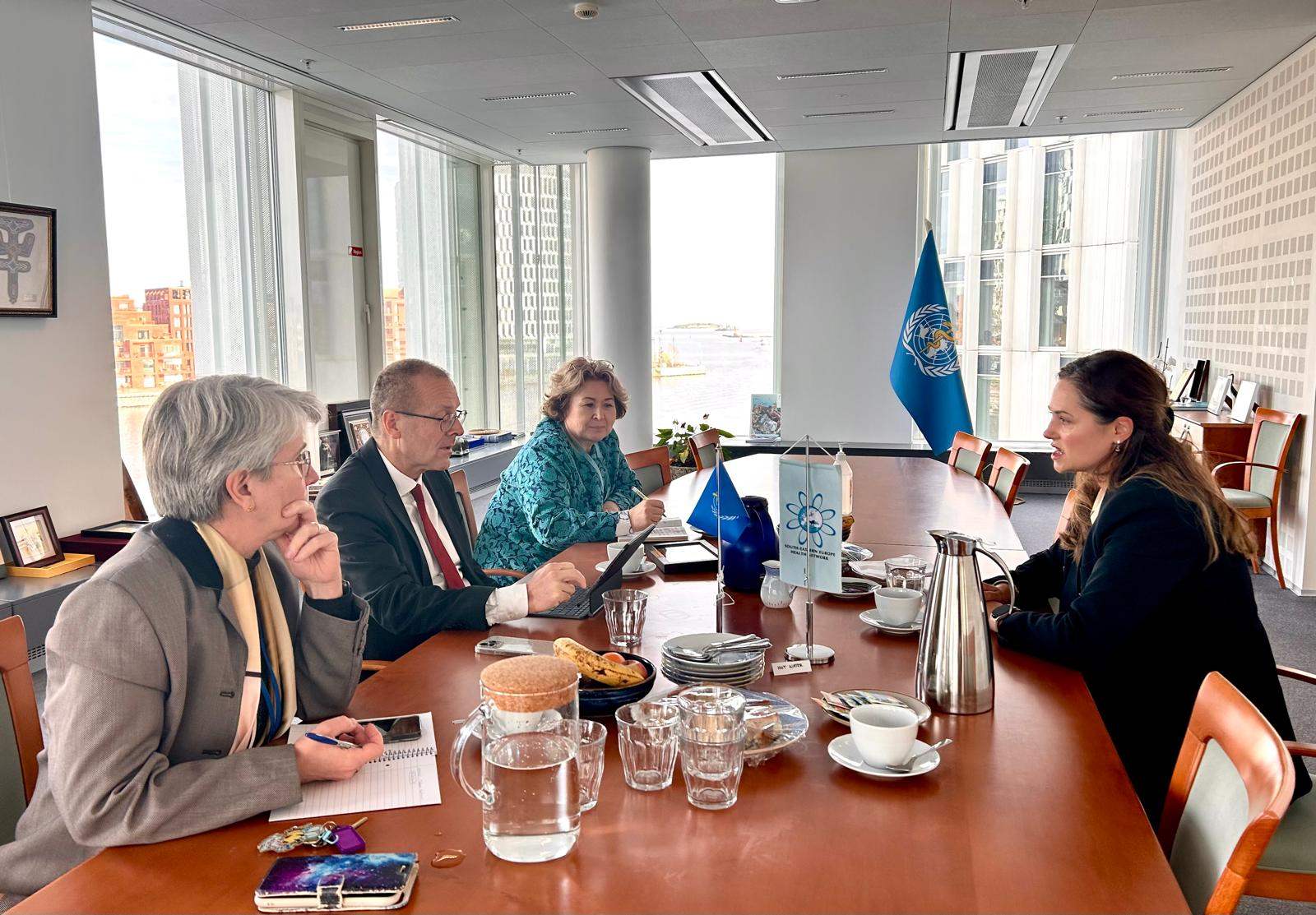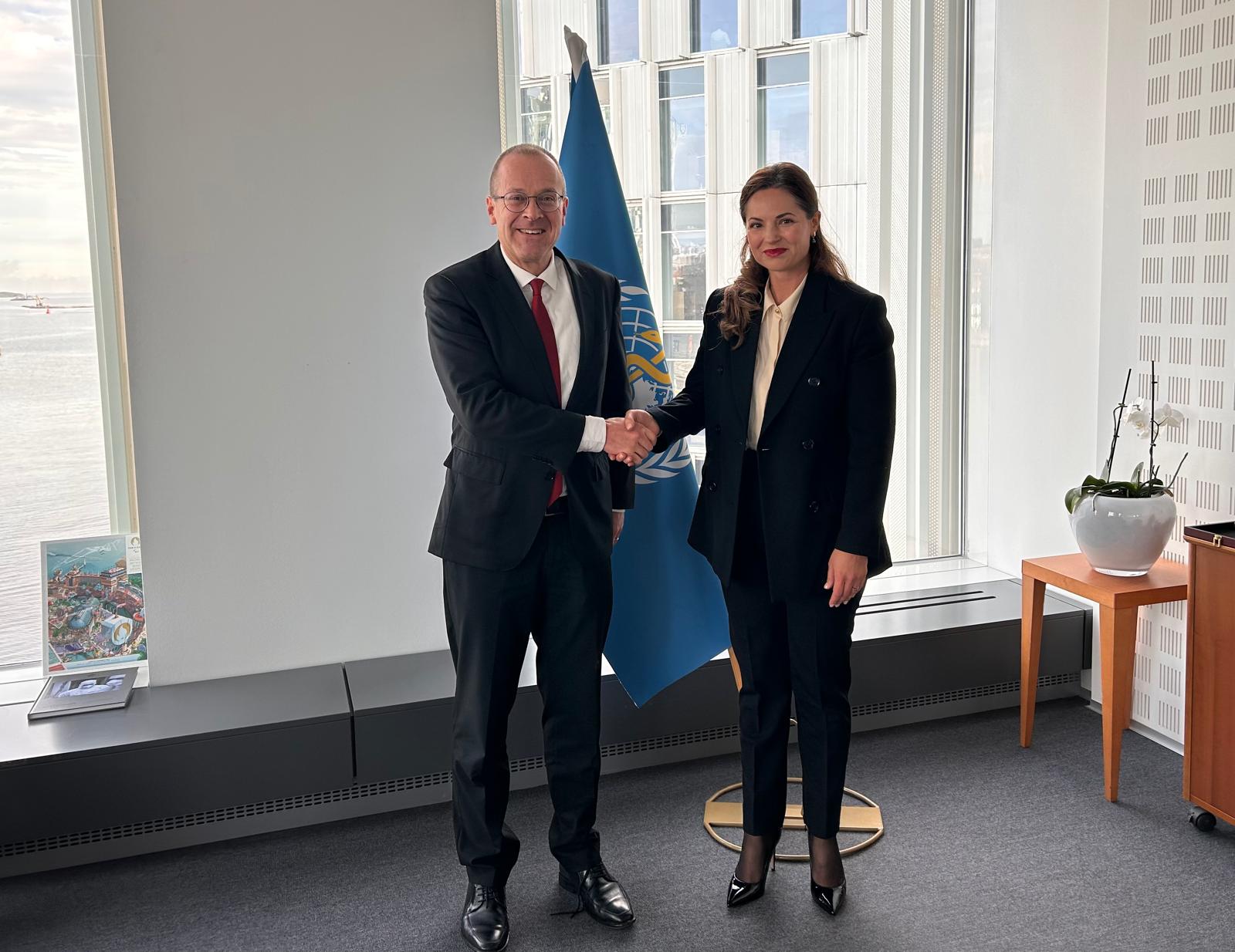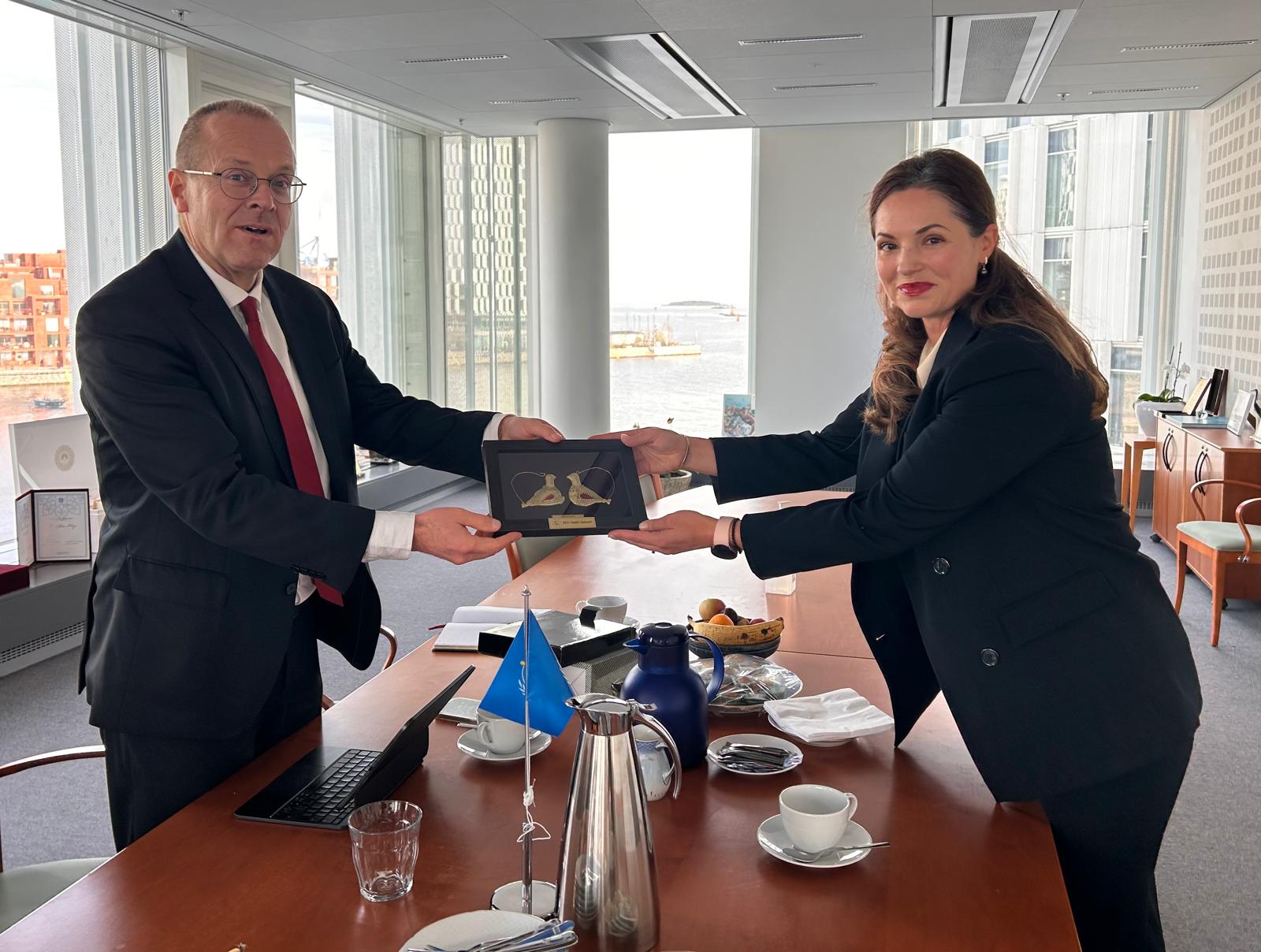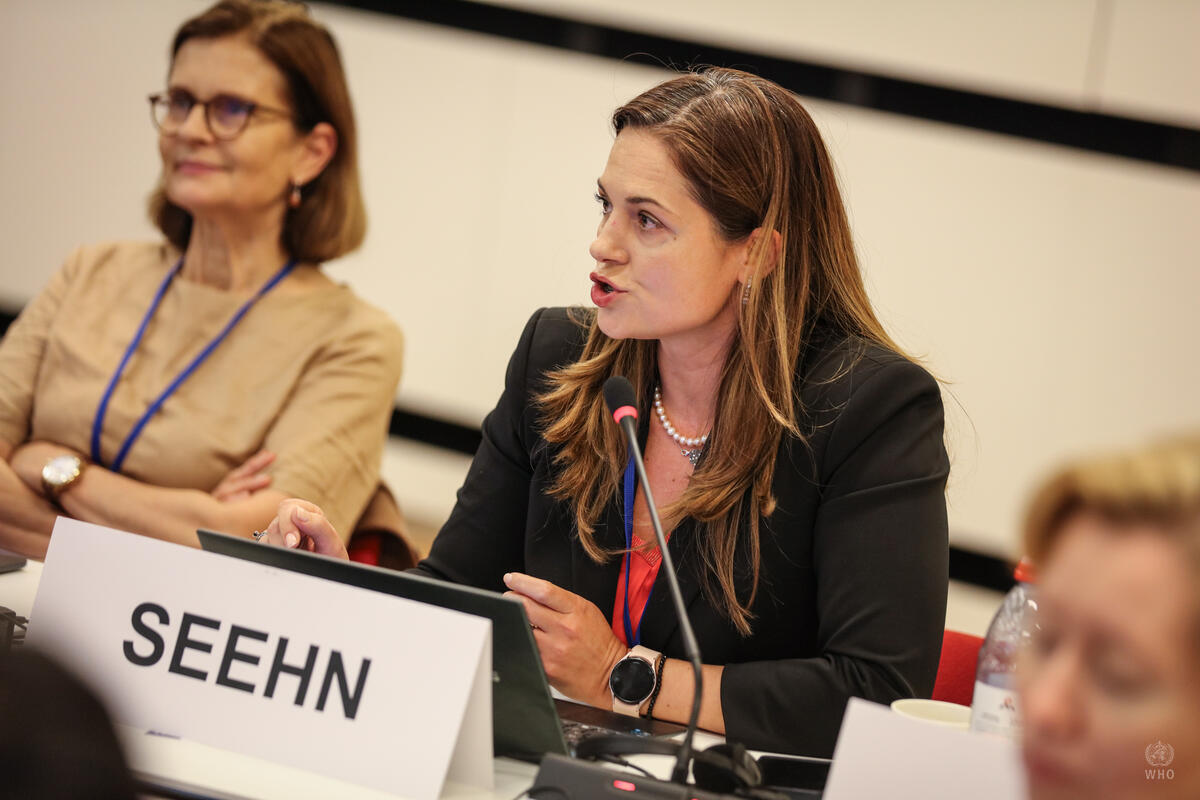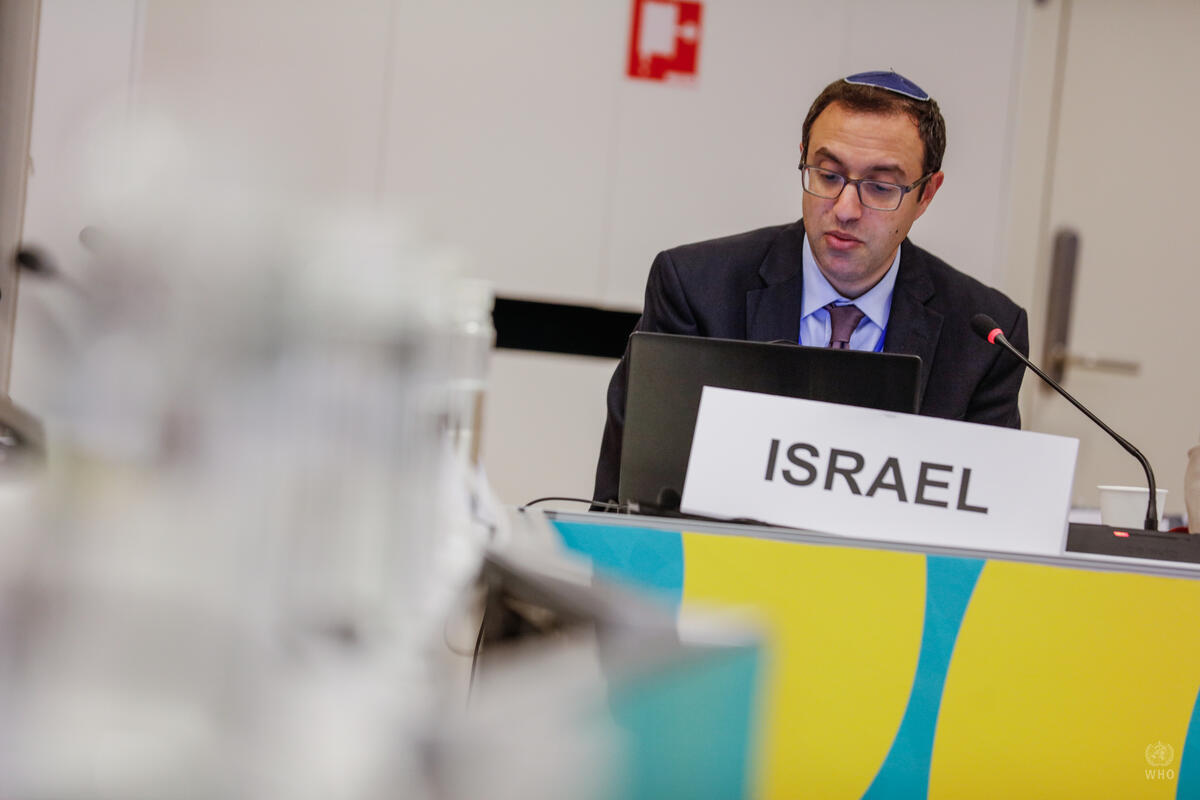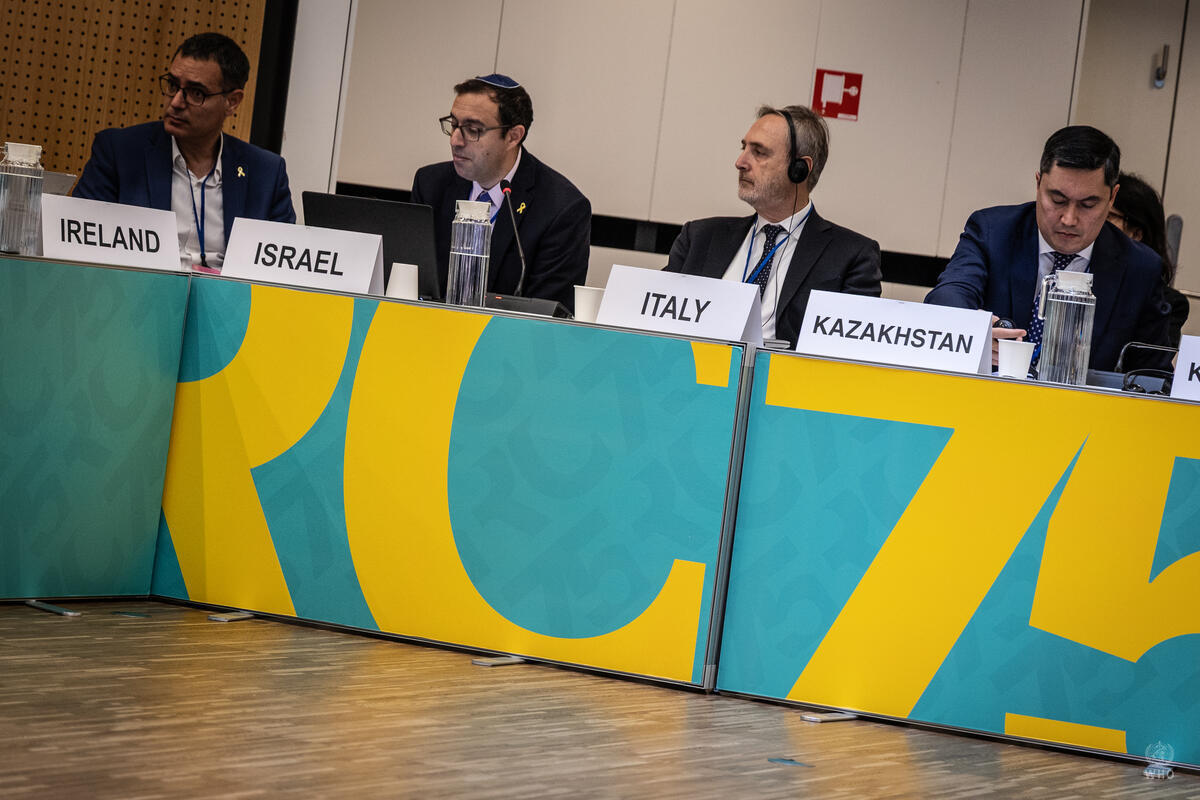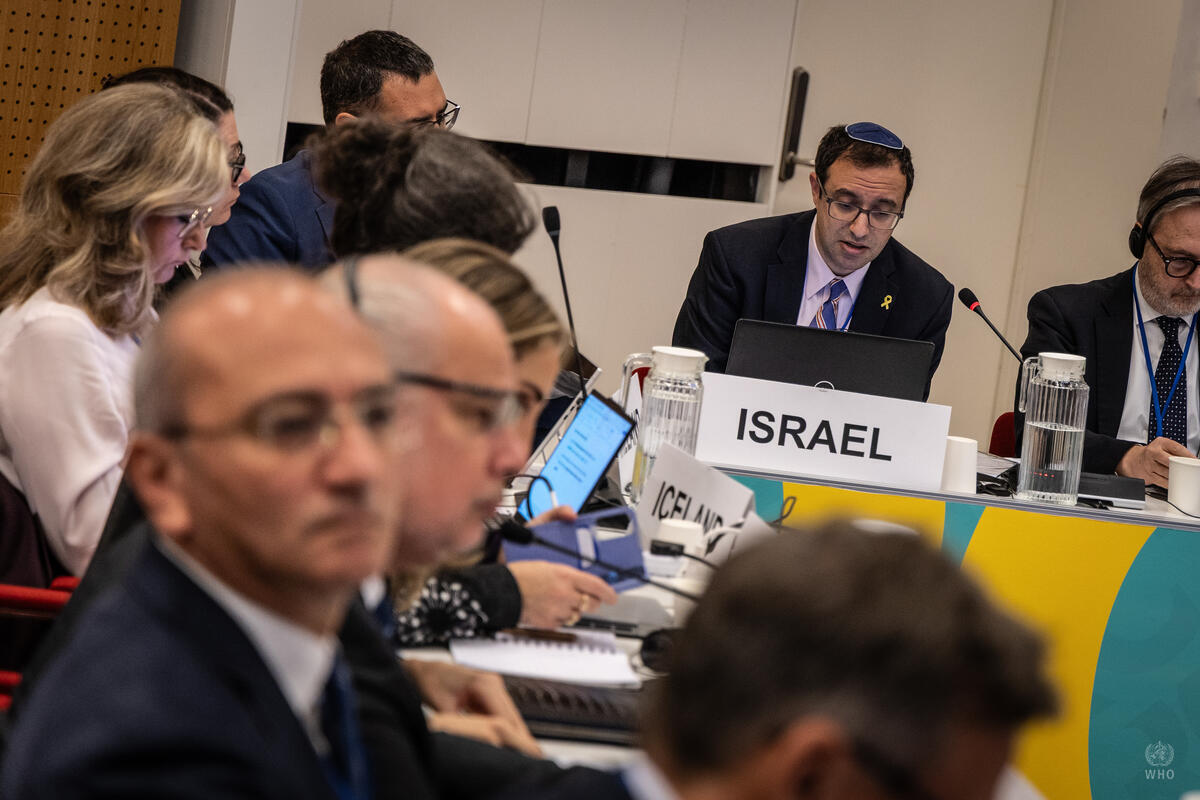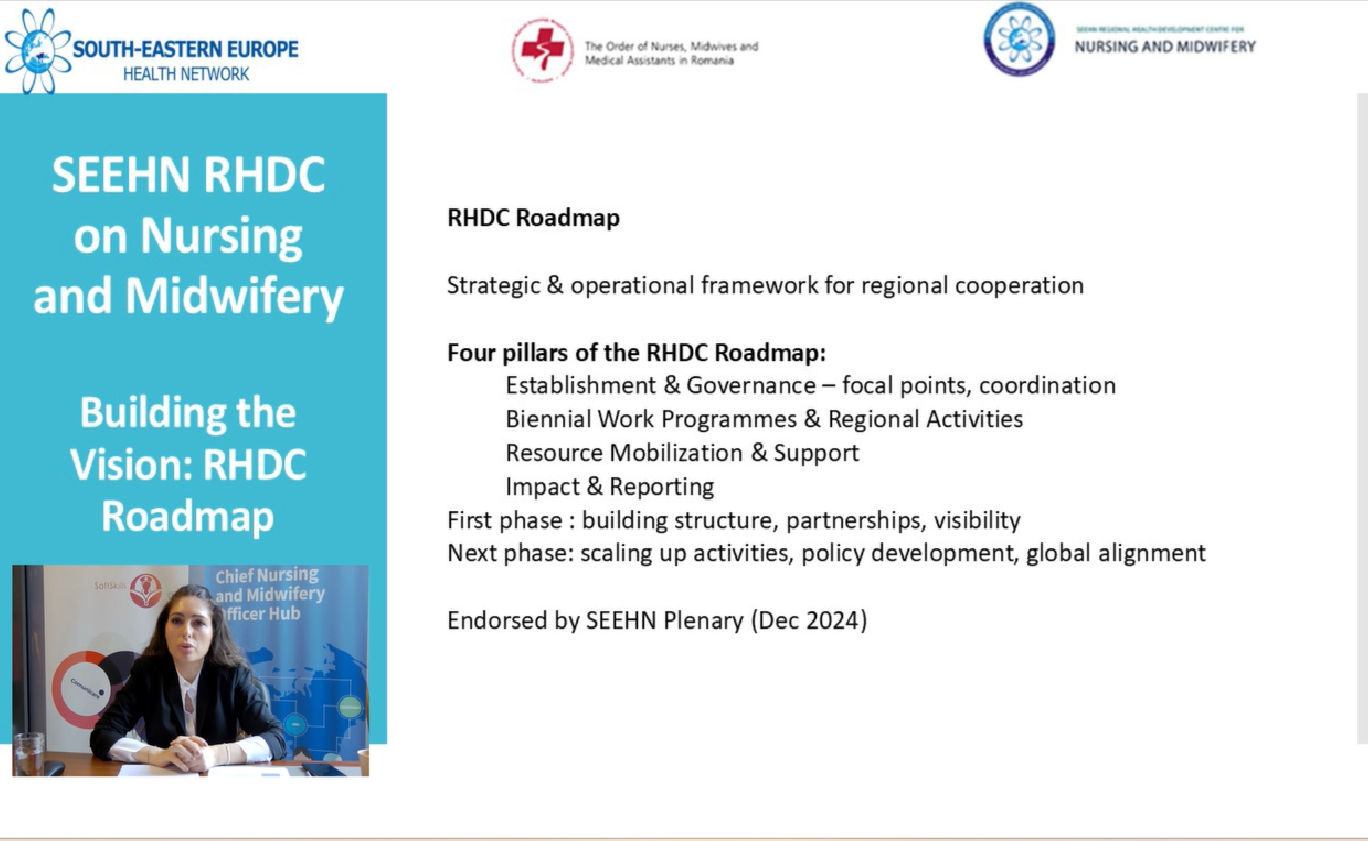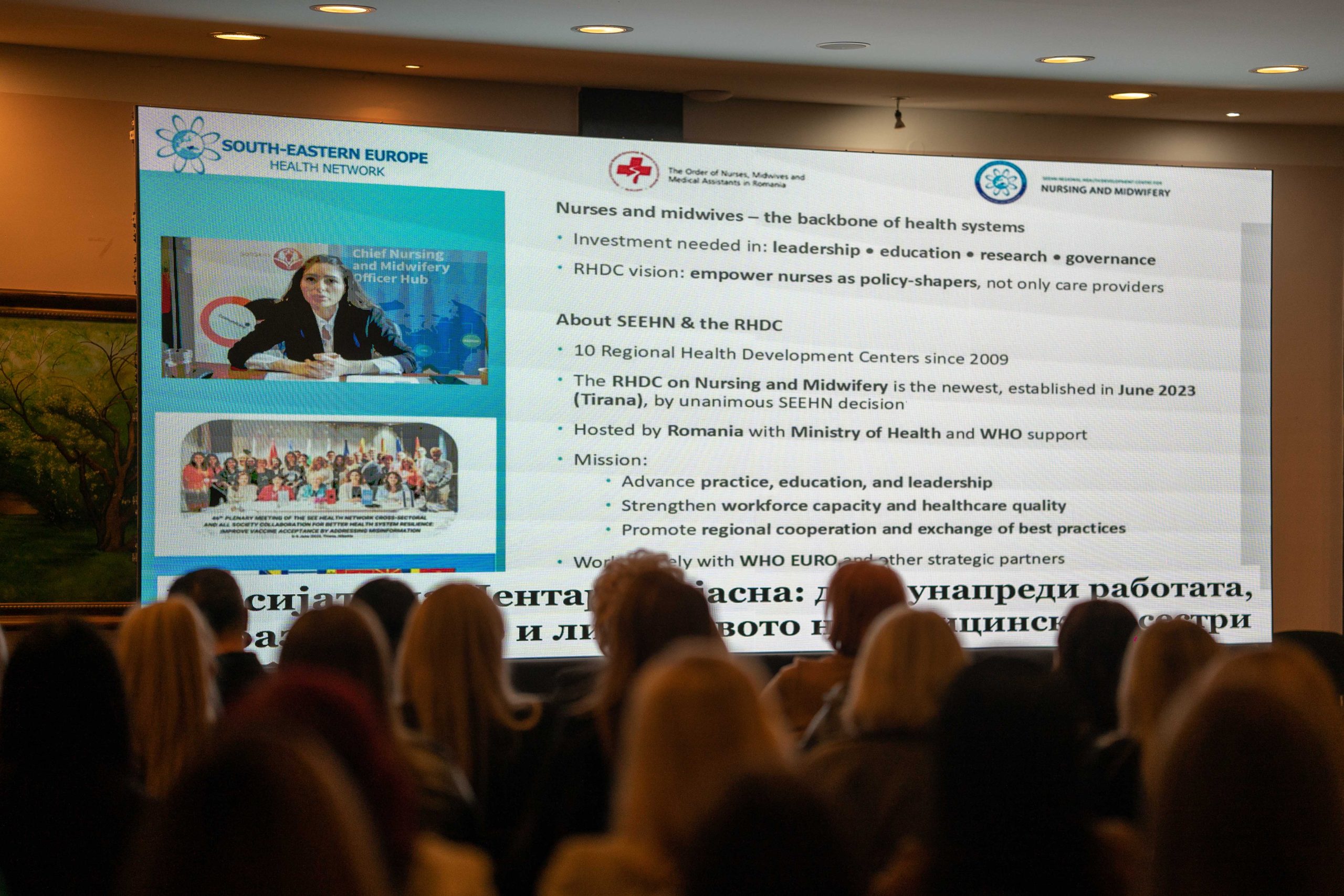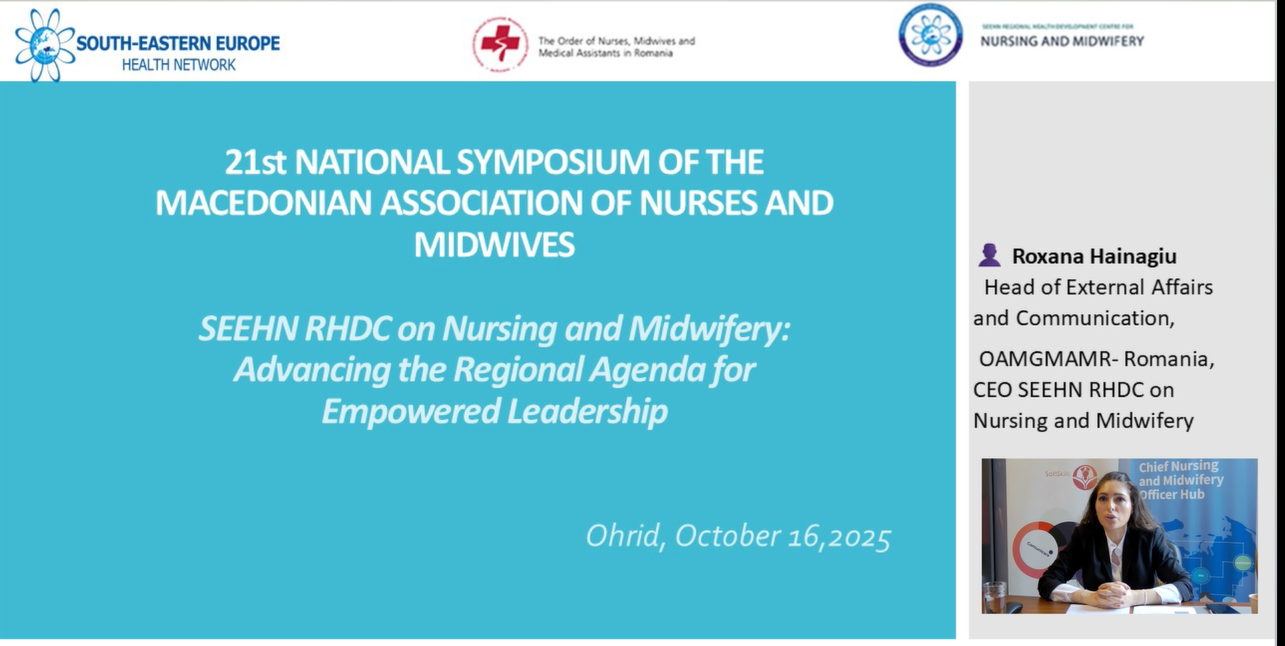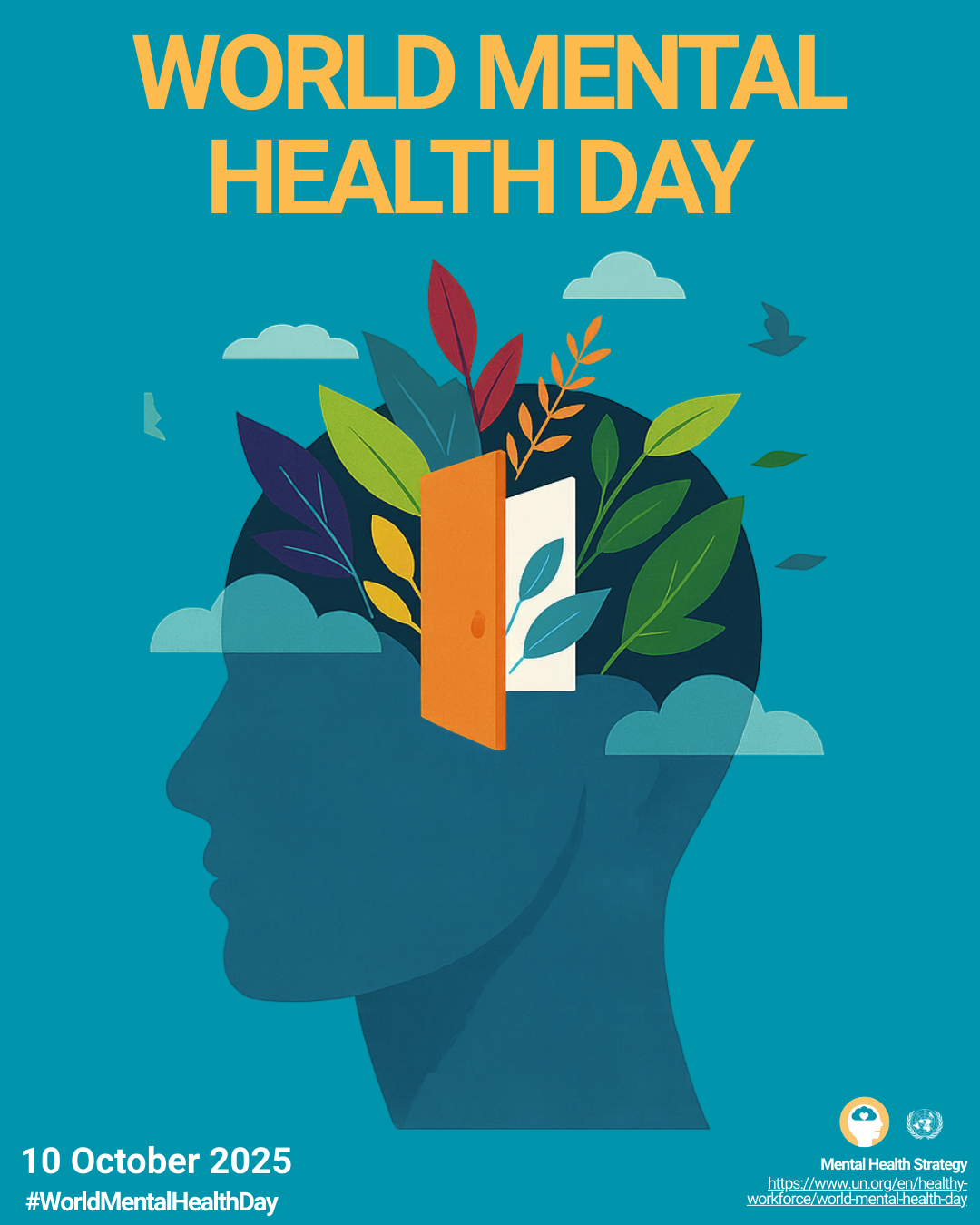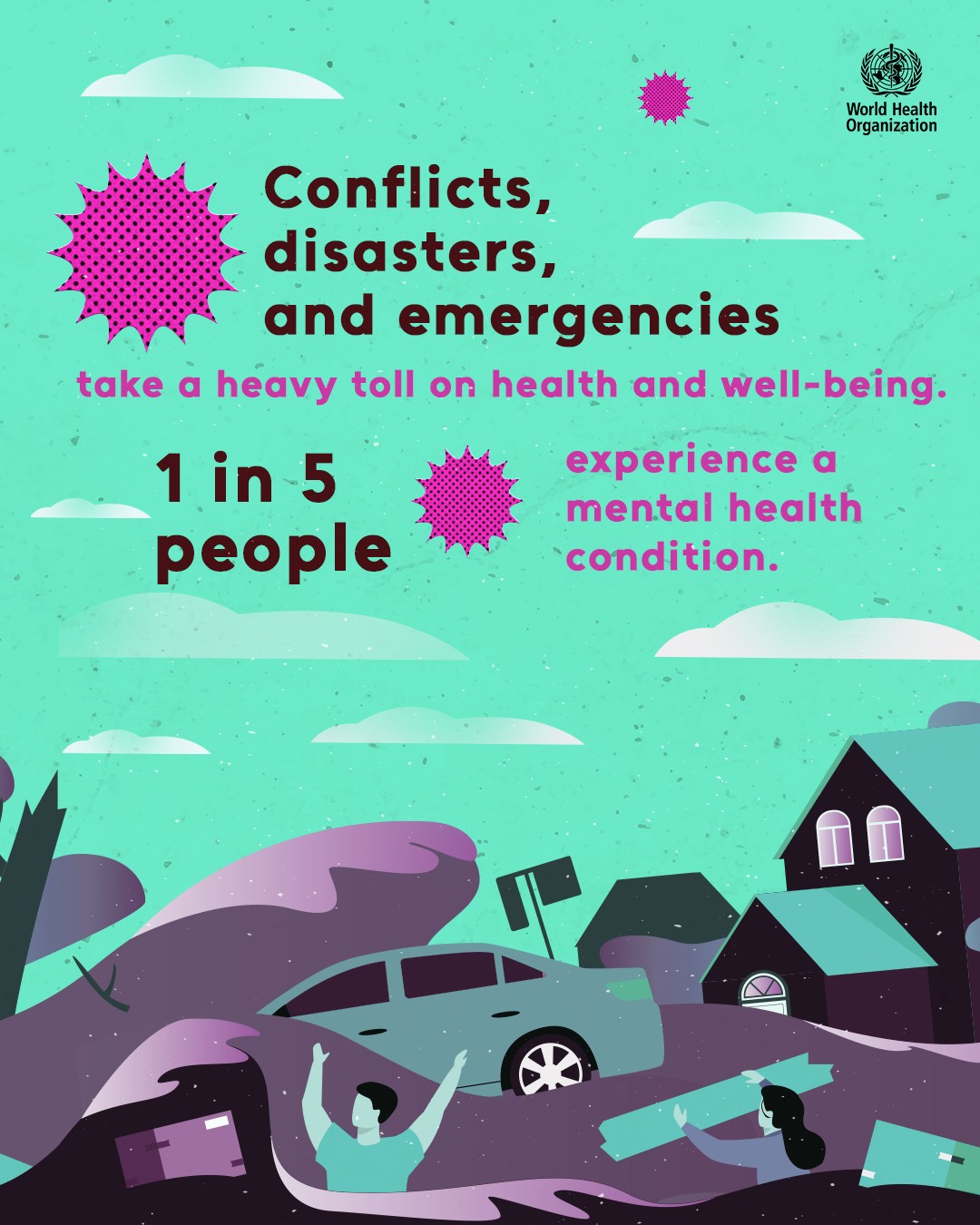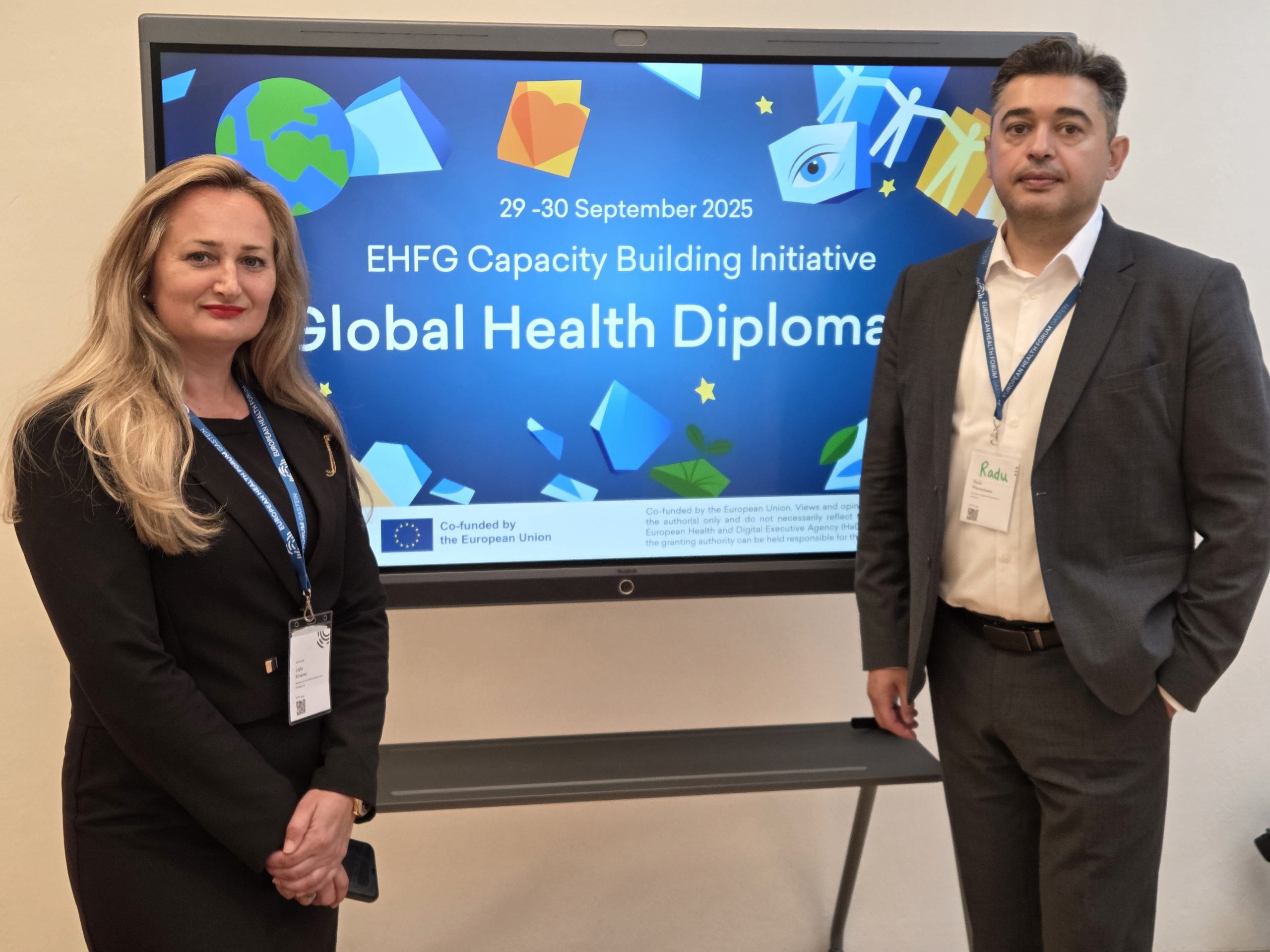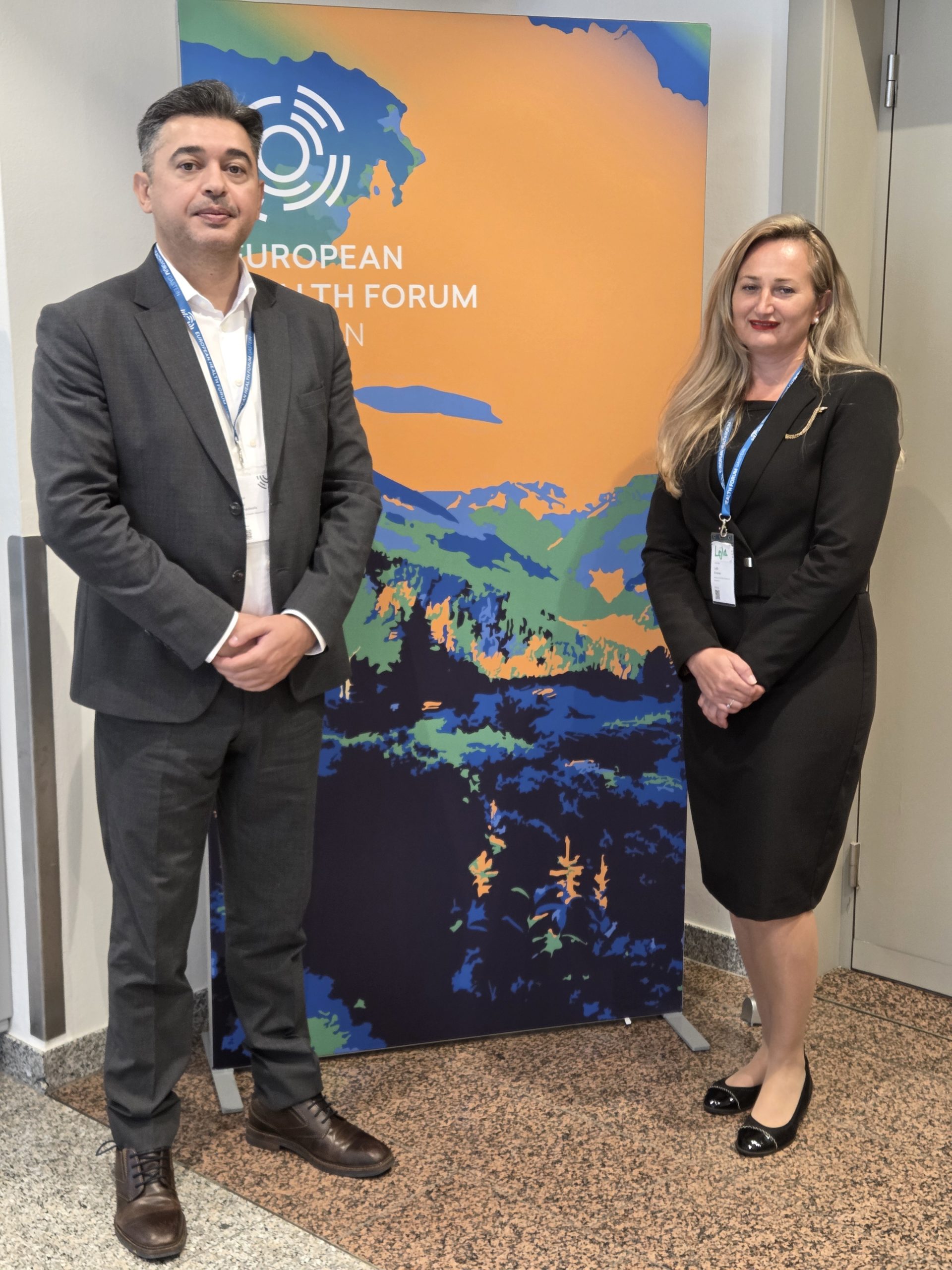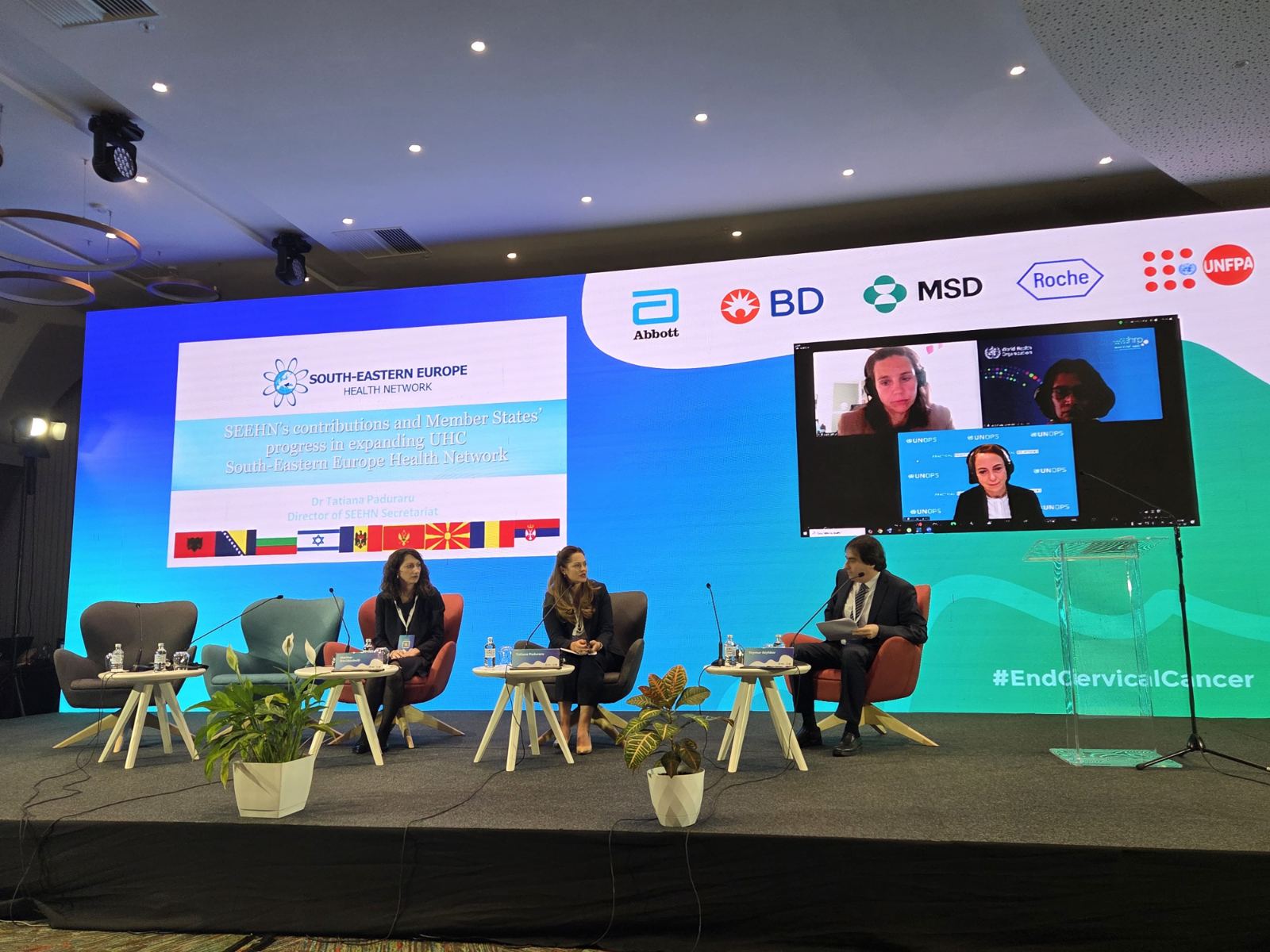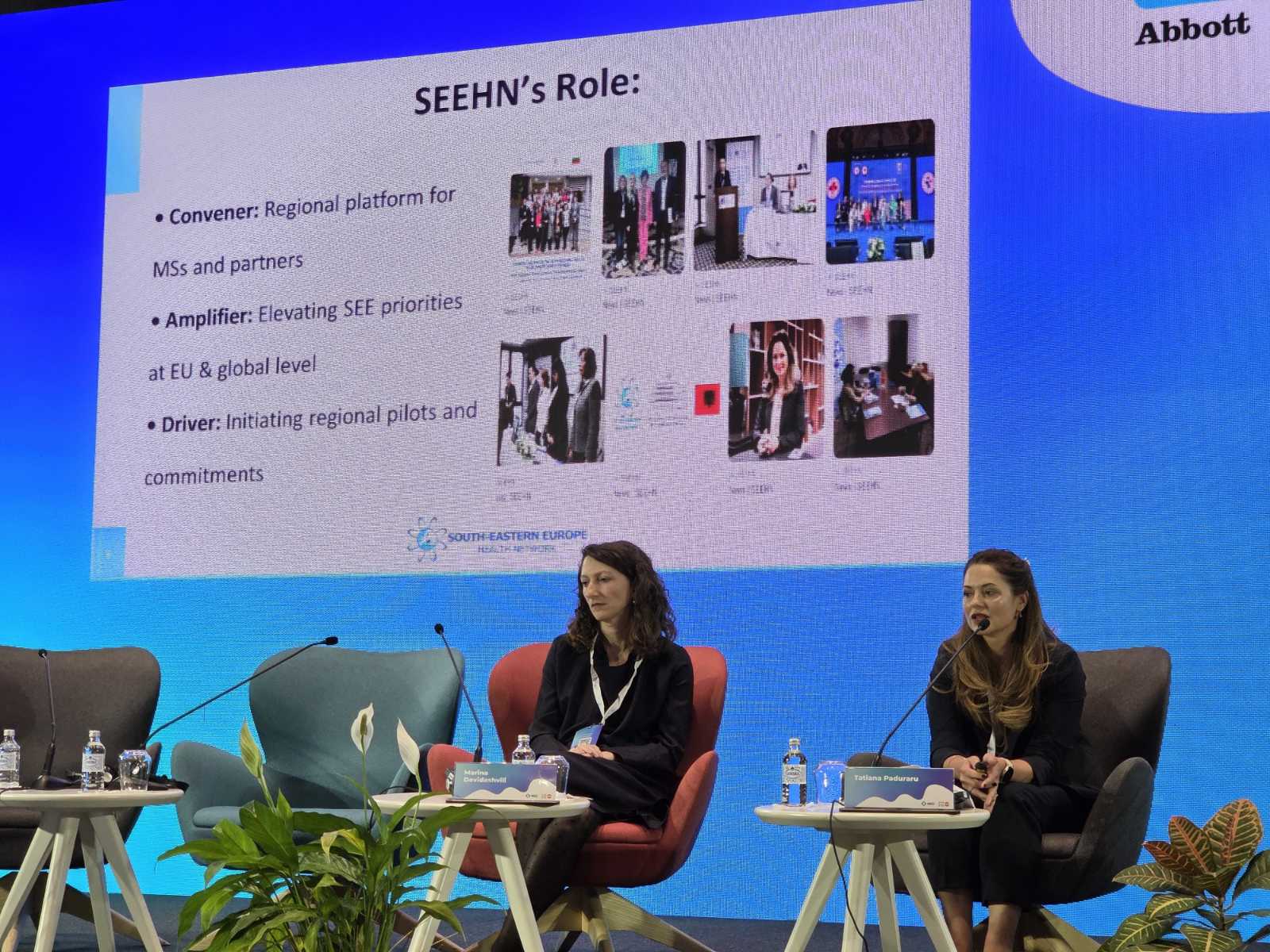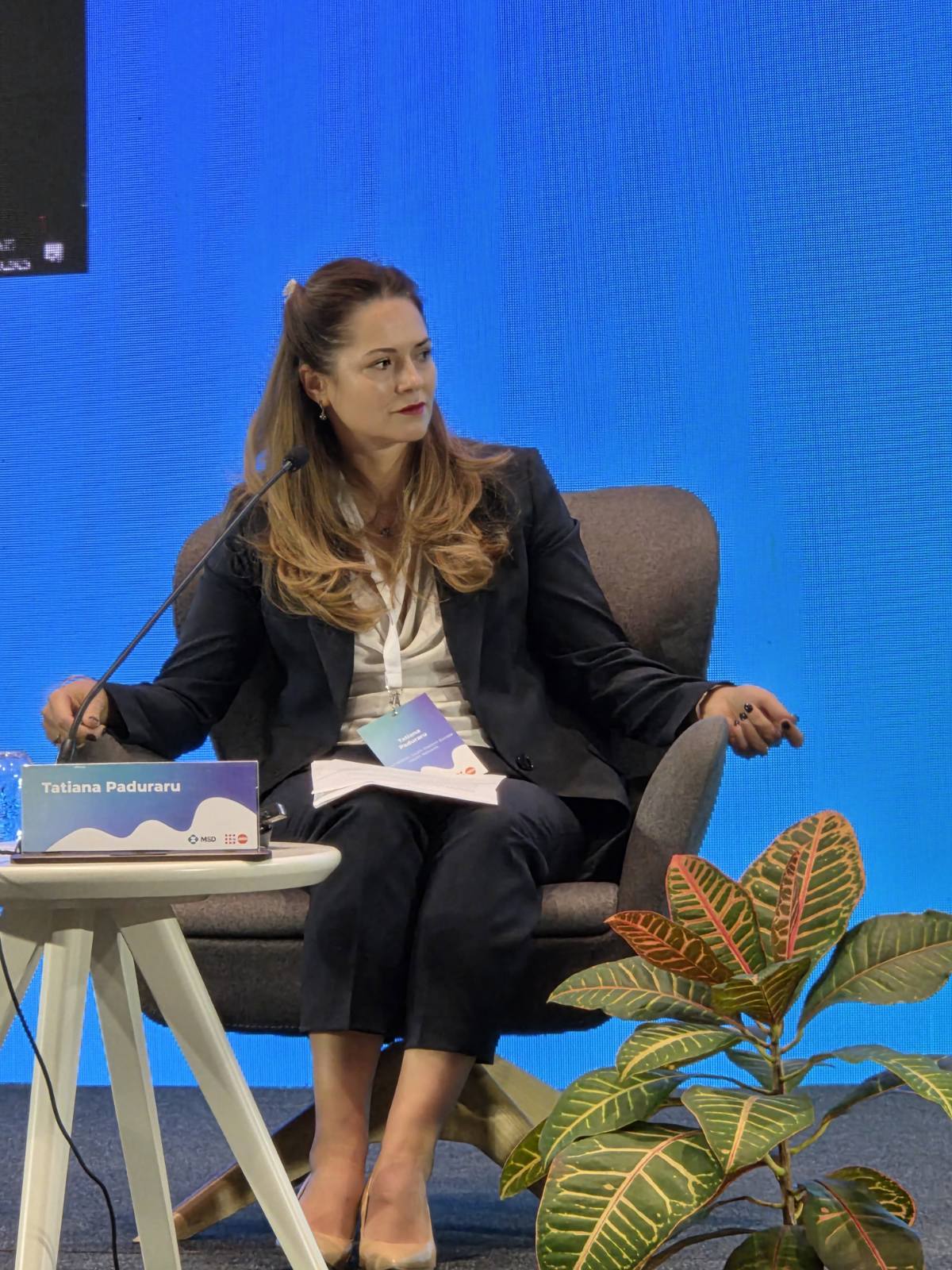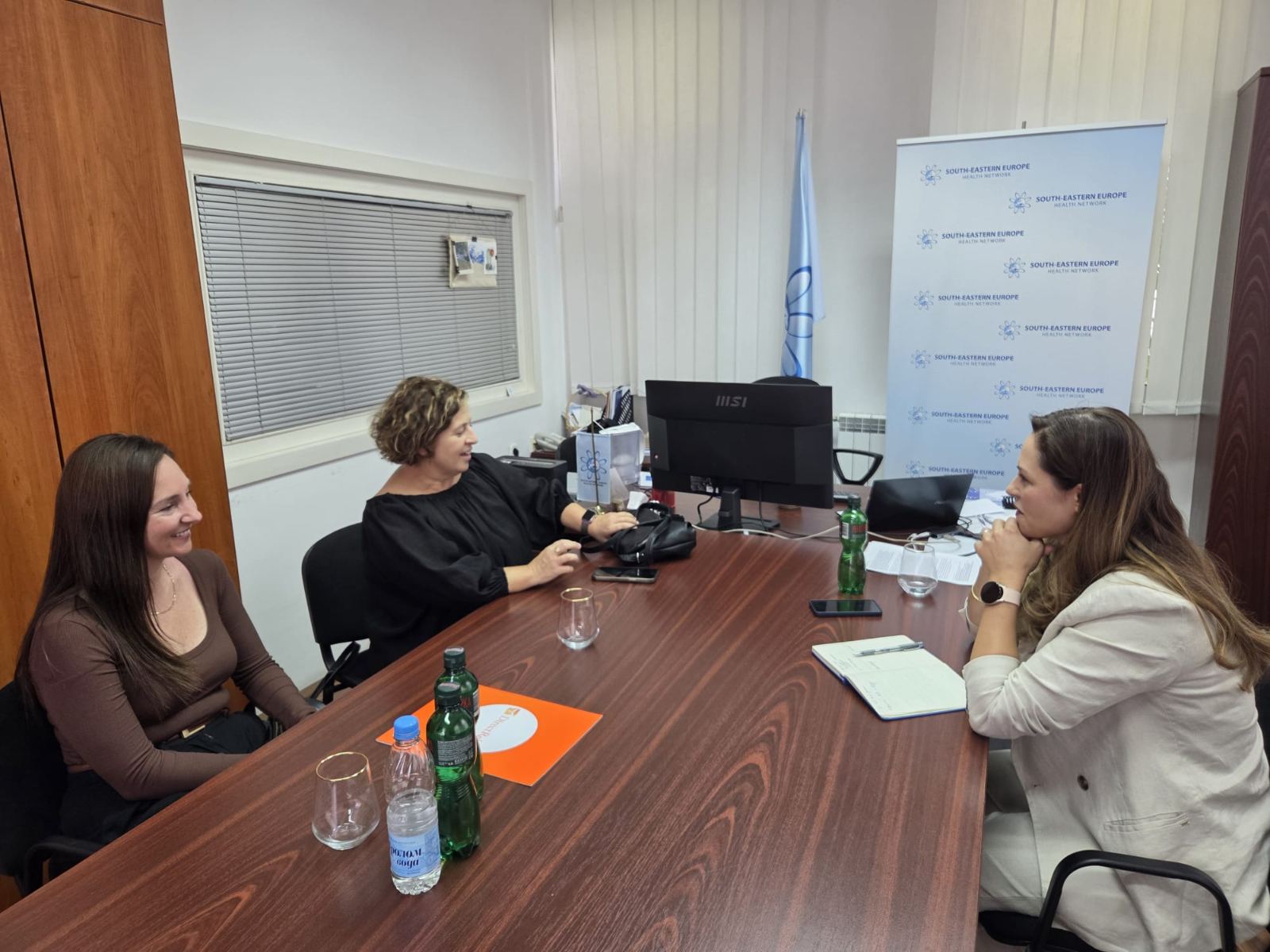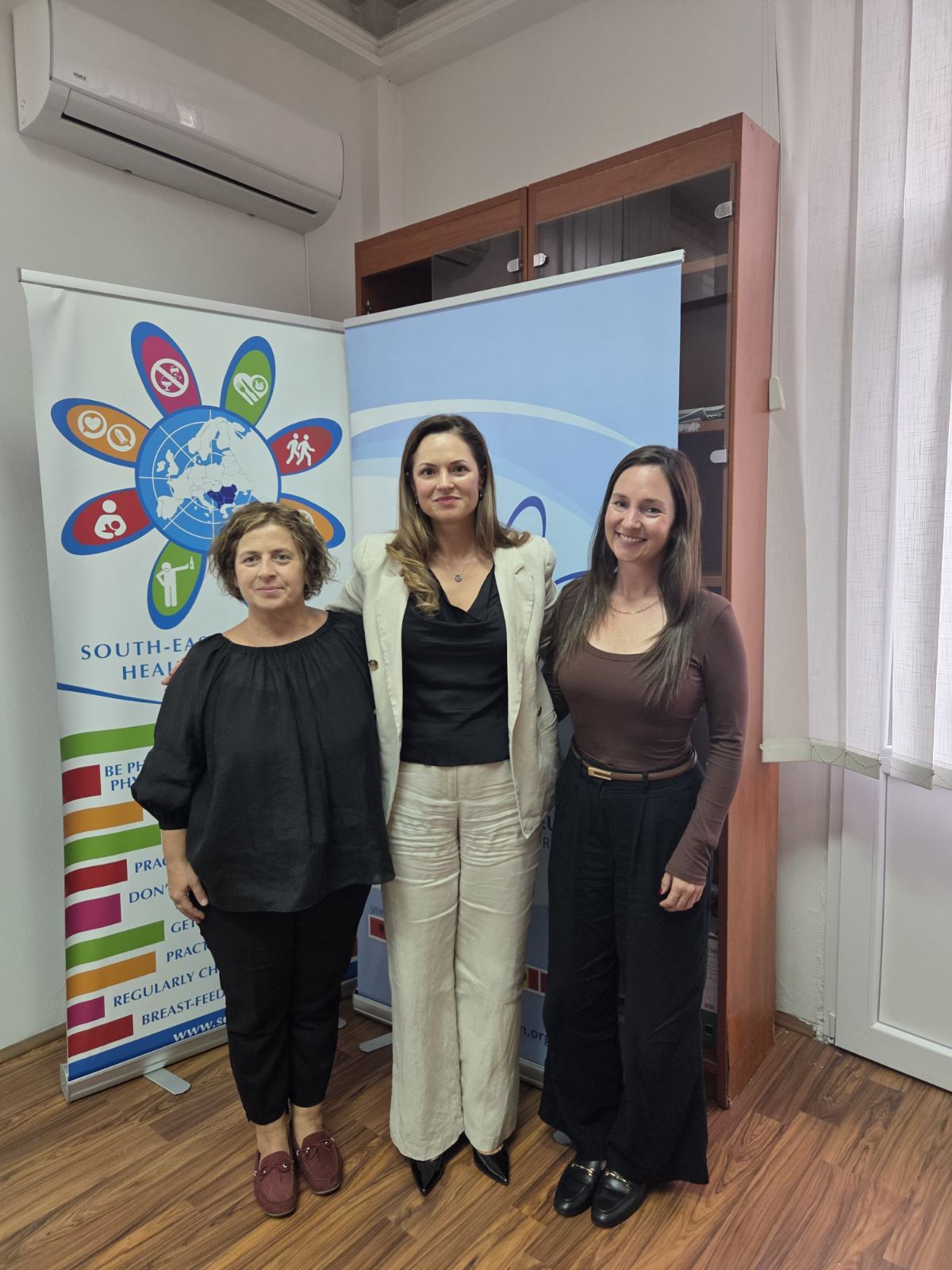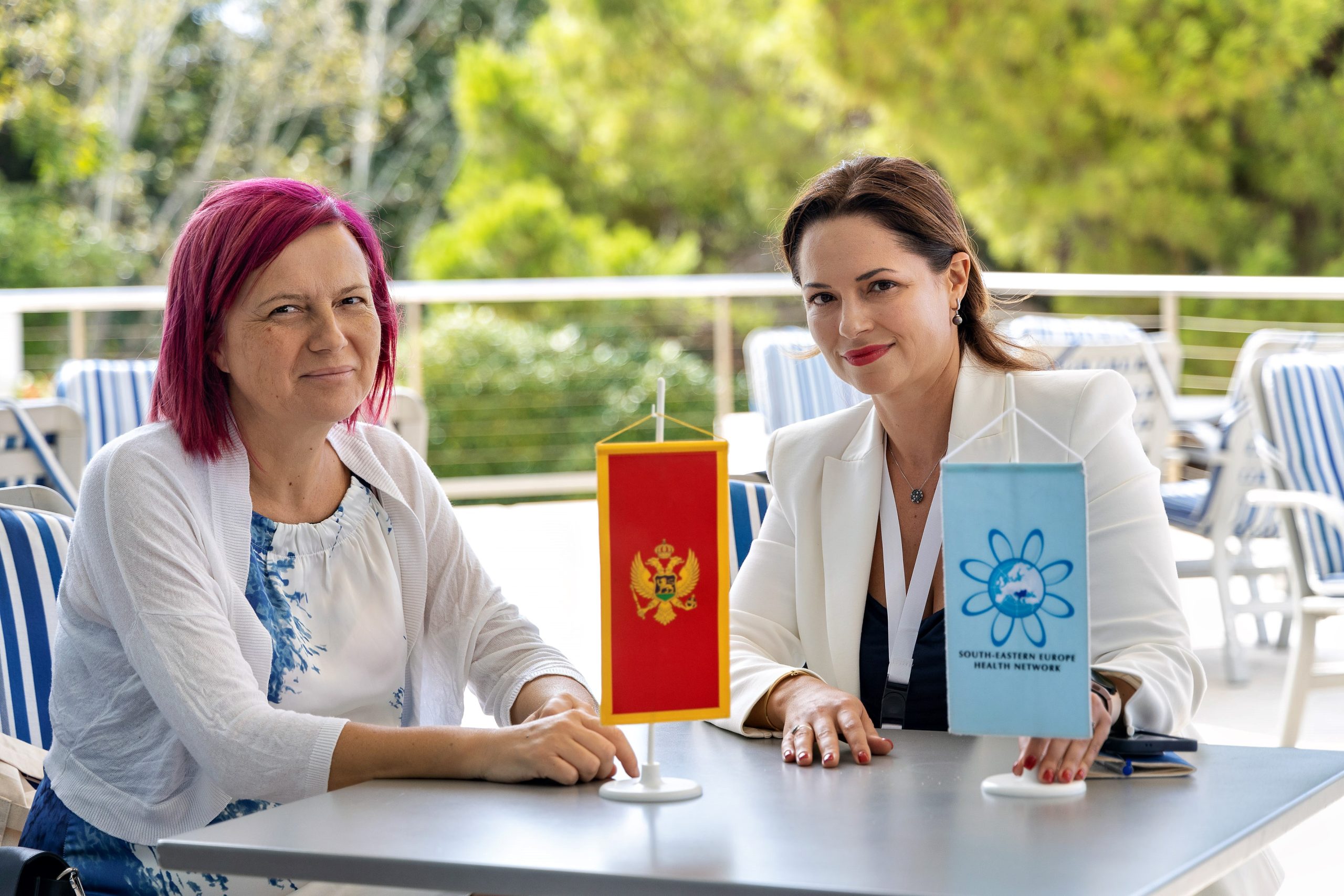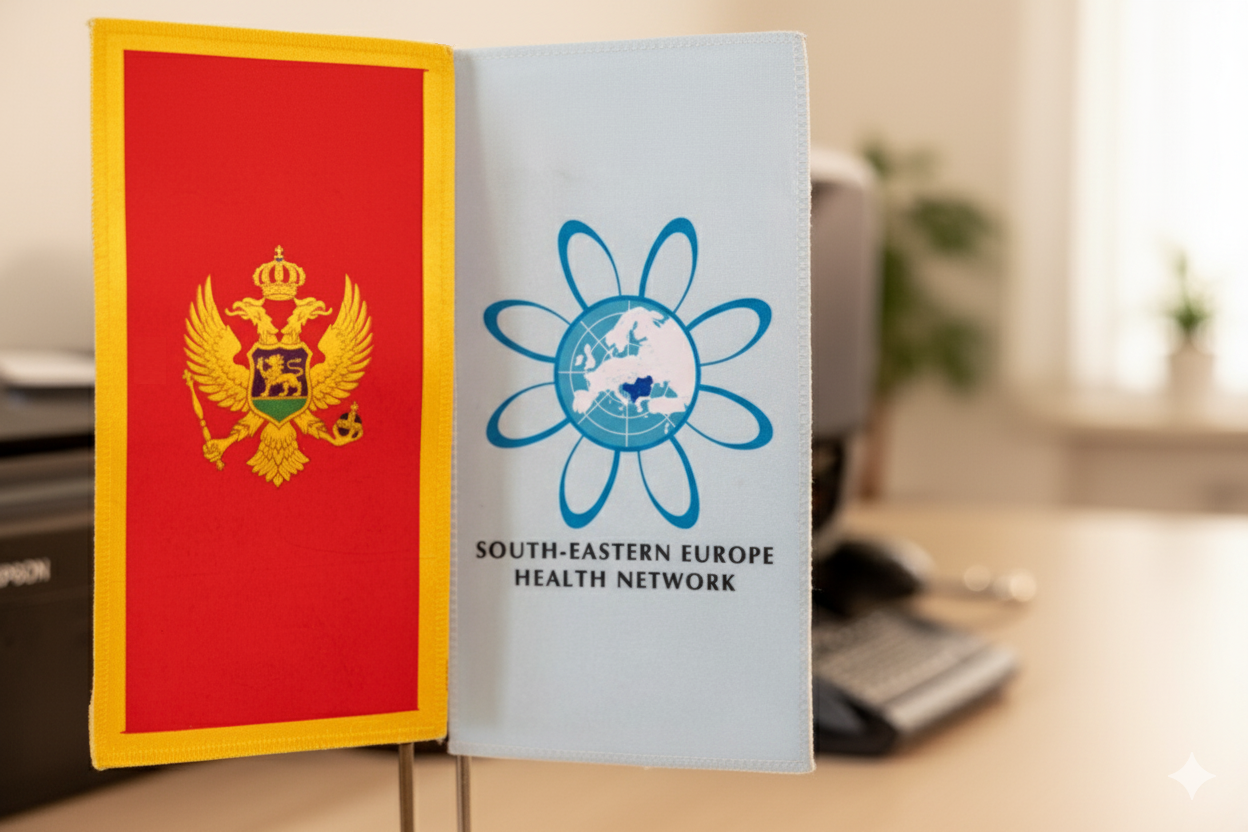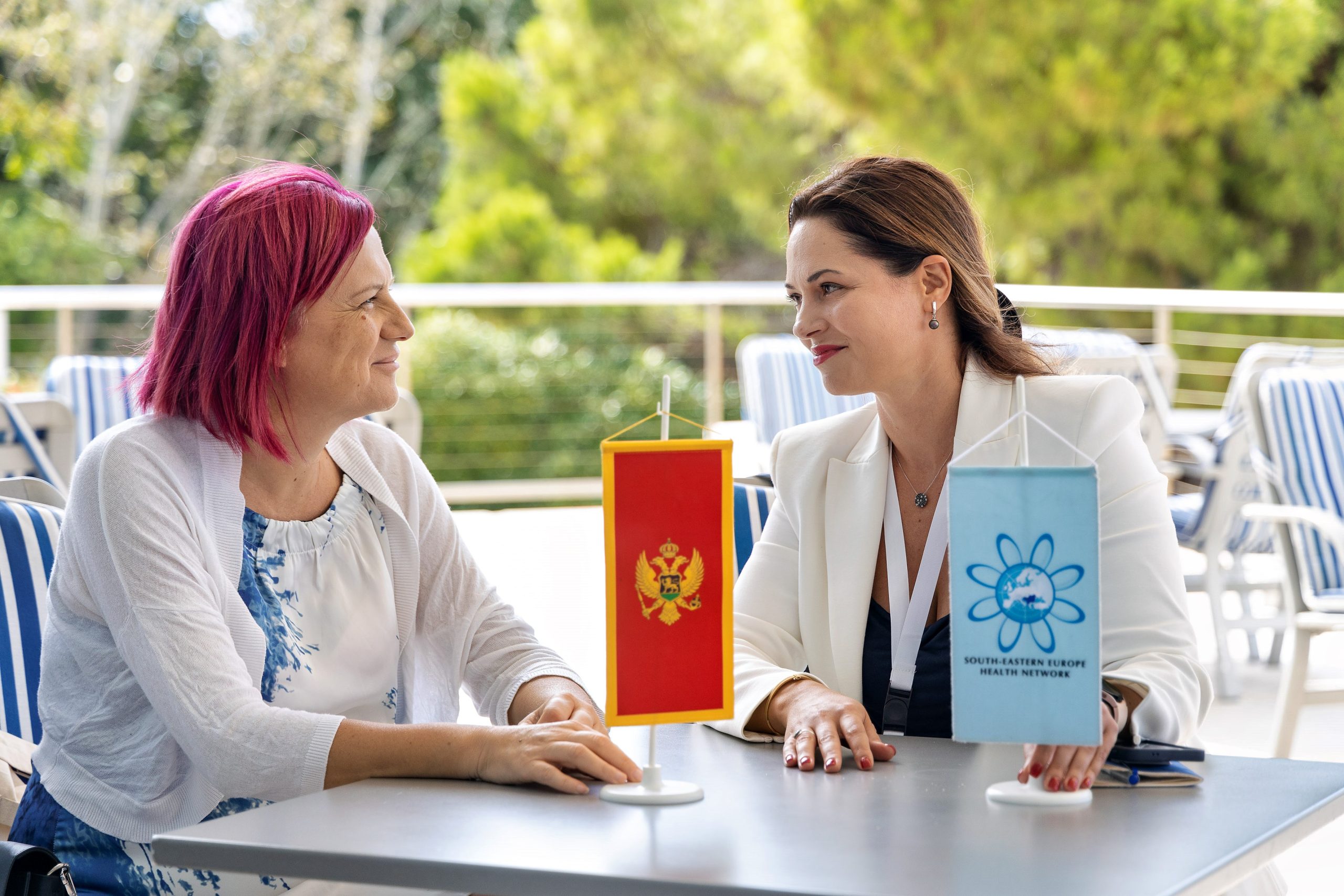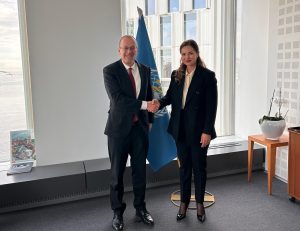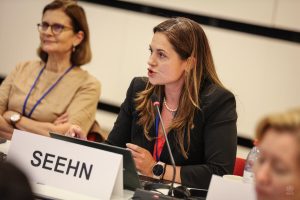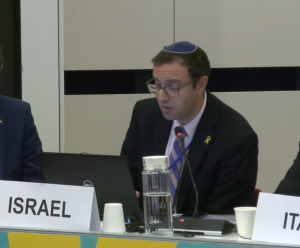
SEEHN Secretariat Leadership Meets WHO EURO Regional Director to Advance Strategic Regional Health Collaboration
Dr. Tatiana Păduraru, Head of the Secretariat of the South-Eastern Europe Health Network (SEEHN), met with Dr. Hans Henri P. Kluge, WHO Regional Director for Europe, on the sidelines of the 75th Regional Committee (RC75) meeting held in Copenhagen on 31 October 2025.
The two leaders reaffirmed the enduring partnership between SEEHN and WHO/Europe and discussed ways further to strengthen both technical and political collaboration across South-Eastern Europe.
They underscored the strong alignment between SEEHN’s mandate and the WHO European Programme of Work, particularly in key priority areas such as noncommunicable diseases (NCDs), digital health, health workforce development, aging, health financing, and strengthening primary health care.
Recent joint efforts—most notably the nursing leadership side event organized during the Seventy-Eighth World Health Assembly—were highlighted as clear examples of the shared commitment to improving health systems resilience and leadership across the region.
A key focus of the meeting was ongoing collaboration on the Western Balkans Roadmap. WHO/Europe recognized SEEHN’s valuable input in the evaluation process and encouraged its active role in shaping the technical direction of the upcoming Roadmap. Both sides expressed their goal of securing strong political endorsement from all relevant stakeholders. SEEHN reaffirmed its readiness to contribute to designing a practical, results-oriented framework and to support implementation through actionable, evidence-based approaches in partnership with WHO/Europe.
Against the backdrop of a complex geopolitical environment, the discussion highlighted the crucial role of health as a unifying platform for dialogue, stability, and solidarity. SEEHN’s leadership during its Israel Presidency was recognized as a notable example of effective health diplomacy in practice. Both sides emphasized the continued importance of coordinated diplomatic efforts to safeguard and advance public health priorities across the region.
The meeting also explored opportunities for joint resource mobilization and global fundraising. The participants emphasized the potential of leveraging SEEHN’s convening power and WHO’s technical and operational expertise to develop joint initiatives for regional programmes.
Dr. Păduraru underscored the importance of investing in human capital and committed leadership to accelerate progress and expressed deep appreciation for WHO/Europe’s ongoing support and collaboration.
Both parties reaffirmed their shared commitment to advancing a strong, equitable, and sustainable health agenda for all populations across South-Eastern Europe.
